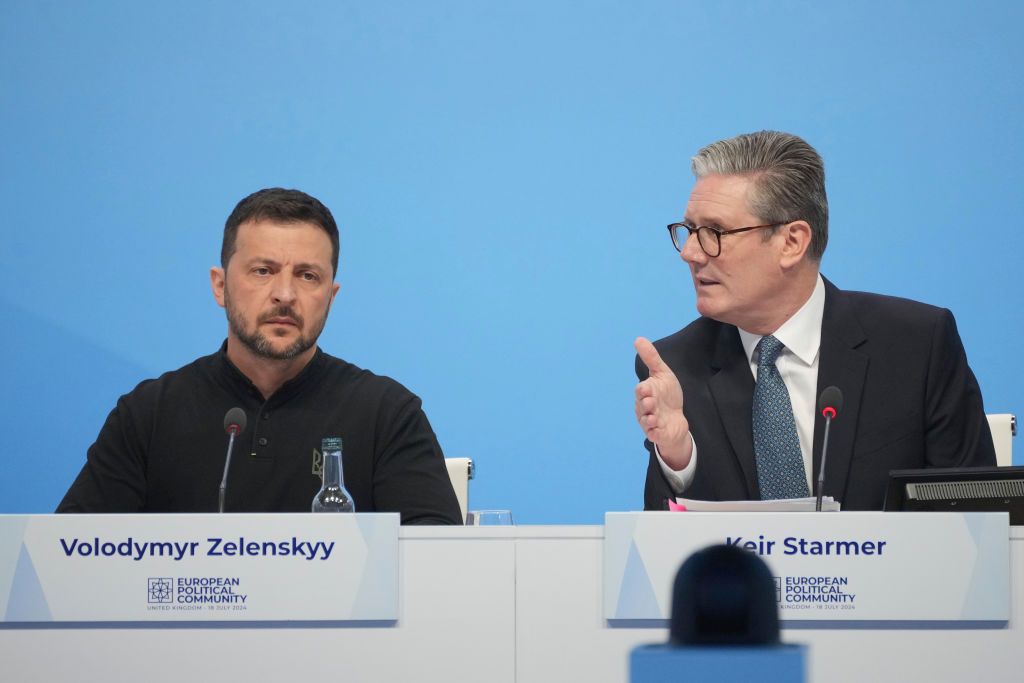'Out of the question,' Scholz rejects downing Russian missiles over Ukraine

German Chancellor Olaf Scholz rejected the idea of allies downing Russian drones and missiles in Ukrainian airspace, the dpa news agency reported on July 18.
Speaking at a European Political Community (EPC) meeting in the U.K., Scholz said that Kyiv's request for NATO allies to intercept Russian weapons flying over Ukraine is "out of the question."
The German chancellor said he saw a consensus on the issue among other partners, adding that the "U.S. is also very clear on this." Outgoing NATO Secretary General Jens Stoltenberg voiced a similar sentiment.
"NATO will support Ukraine, and we have now increased our support...But NATO's policy is unchanged – we will not be involved in this conflict," Stoltenberg said last week.
"So we support Ukraine in the destruction of Russian aircraft, but NATO will not be directly involved," he added.
The only NATO country to openly consider the idea was Poland, Ukraine's western neighbor that saw Russian missiles briefly enter its airspace on several occasions.
Although a bilateral security treaty signed between Poland and Ukraine on July 8 envisaged "a mechanism" for intercepting Russian missiles and drones, no definitive decision has been taken so far. Warsaw said that an agreement within NATO is necessary for such a step.
President Volodymyr Zelensky has appealed to the Western partners to help protect Ukrainian airspace the same way they did when Iran launched a wave of drones and missiles against Israel in April.
"By defending Israel, the free world demonstrated that unity (among allies) is not only possible but 100% effective," Zelensky said.
"The allies' decisive actions prevented the success of terrorism and loss of infrastructure and forced the aggressor to cool down. The same can be done to defend Ukraine from terrorism, and Ukraine, just like Israel, is not a NATO member."
Scholz also objected to lifting restrictions on Ukrainian strikes deep within Russian territory with Western-supplied arms, another step that Kyiv called for. Germany and the U.S. have permitted such attacks only just across the Ukrainian-Russian border to disrupt Russian offensive operations.












